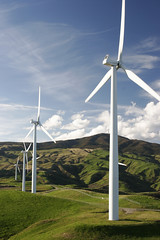| 10504386605 | Environmental Science | The study of the impact of humans on the environment |  | 0 |
| 10504386606 | Ecology | the study of how living things interact with each other and with their non-living environment. (biotic and abiotic parts) |  | 1 |
| 10504386607 | Sociology | the study of human population dynamics and statistics |  | 2 |
| 10504386608 | Hunter Gatherers | people who obtain food by collection plants, hunting, and scavenging. |  | 3 |
| 10504386609 | Over Hunting | Lead to extinction such as saber-tooth-cats and giant bison. |  | 4 |
| 10504386610 | Agricultural Revolution | occurred when hunter-gathers began to plant the seeds they collected and the domestication of animals. |  | 5 |
| 10504386611 | Agriculture | the practice of growing, breeding, and caring for plants and animals that are used for food, clothing, housing, and transportation. |  | 6 |
| 10504386613 | Industrial Revolution | Shift from man/animal power to fossil fuels. |  | 7 |
| 10504386617 | Resource Depletion . | When a specific resource is all used up |  | 8 |
| 10504386618 | Natural Resources | Any natural material that is used by humans. |  | 9 |
| 10504386619 | Renewable | Can be replaced quickly by natural processes. |  | 10 |
| 10504386620 | Air, water, soil, trees, and solar | Renewable resources |  | 11 |
| 10504386622 | Nonrenewable Resources | Oil and Minerals | 12 | |
| 10504386623 | Pollution | An undesired change in air, water, or soil that adversely affects the health, survival or activities of humans or other organisms. |  | 13 |
| 10504386624 | Biodegradable Pollutants | those that can be broken down by a natural process. |  | 14 |
| 10504386625 | Human Sewage and Food Waste | Example of biodegradable pollutants. |  | 15 |
| 10504386626 | Mercury, Lead, and Plastic | Example of non-degradable pollutants |  | 16 |
| 10504386627 | Non-Degradable Pollutants | Those that cannot be broken down by natural processes. | 17 | |
| 10504386628 | Biodiversity | The number and variety of species that live in an area. |  | 18 |
| 10504386630 | "Tragedy of the Commons" | Essay which was written in 1968 which explored the conflict between the short-term interest of man and long-term welfare of society. |  | 19 |
| 10504386631 | Law of Supply and Demand | state the greater the demand for a limited supply of something, the more the thing is worth. |  | 20 |
| 10504386632 | Cost and Benefits | Is the cost of the program worth the benefit? Examples: Forcing everyone to use an electric car. |  | 21 |
| 10504386633 | Risk Assessment | An example of this is Nuclear energy | 22 | |
| 10504386634 | Ecological Footprint | Shows the productive area of Earth needed to support one person in a particular country. |  | 23 |
| 10504386635 | Sustainability | the condition in which a human needs are met in such a way that a human population car survive indefinitely. |  | 24 |
Environmental Science: Chapter 1 Flashcards
Primary tabs
Need Help?
We hope your visit has been a productive one. If you're having any problems, or would like to give some feedback, we'd love to hear from you.
For general help, questions, and suggestions, try our dedicated support forums.
If you need to contact the Course-Notes.Org web experience team, please use our contact form.
Need Notes?
While we strive to provide the most comprehensive notes for as many high school textbooks as possible, there are certainly going to be some that we miss. Drop us a note and let us know which textbooks you need. Be sure to include which edition of the textbook you are using! If we see enough demand, we'll do whatever we can to get those notes up on the site for you!

